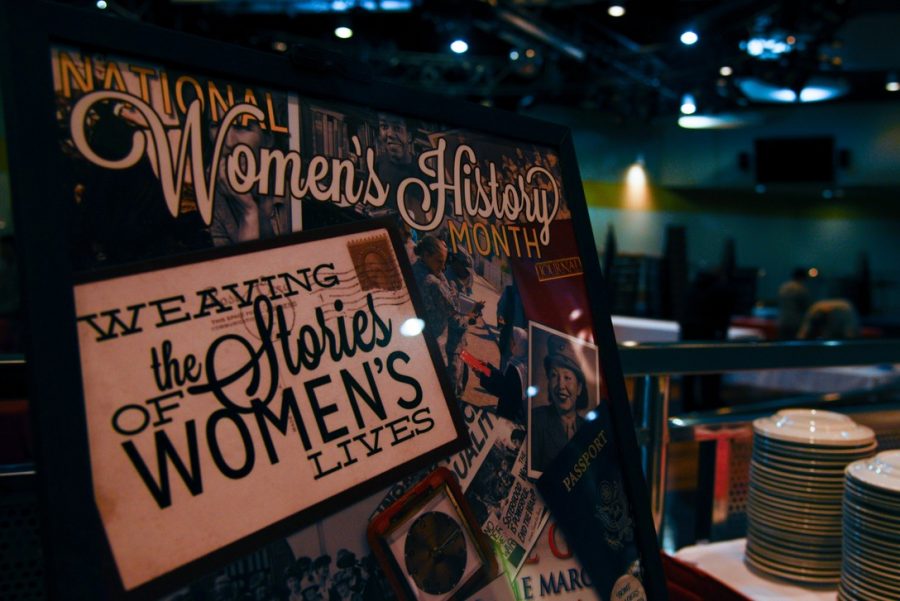31 Days Dedicated to Honor Women in History
A poster on display in the Osan Air Base in honor of Women’s History Month.
February 28, 2020
Starting March 1, National Women’s History Month will begin. This month-long holiday celebrates the impact of women in history, such as Harriet Tubman, Ada Lovelace, and Rosa Parks.
“It’s important because it shows how women have improved, gaining their independence,” explains seventh-grader Sydney Mastick.
Although this holiday is celebrated every March, there was a great amount of hard work involved to make it happen. The National Women’s History Project (NWHP) attempted to convince Congress to designate March as Women’s History Month. Their reason was to remember the brave actions of the diverse women in history. However, Jimmy Carter designated the week of March eighth as National Women’s History Week. After six years, the NWHP successfully convinced Congress to designate March as National Women’s History Month.
For almost 150 years, the dream to vote was a fantasy until Susan B. Anthony, Elizabeth Stanton, and many others turned it into a reality. In 1848, a women’s rights convention was held in Seneca Falls, New York. They discussed how women should have more freedom, believing all women had the right to vote. Afterward, they began to educate the public about the suffrage movement. Women in voting offices would be punished. In 1910, several states extended voting rights to women. Finally, on August 18, 1920, the 19th Amendment was created by the Constitution, granting the right for women to vote. The suffrage movement later sparked a great number of ideas, like the Women’s March, a way for people to celebrate women and the strides they have made.
One example of the numerous women who persevered no matter what, is Amelia Earhart. Earhart was an American aviator who conquered multiple records and proved that no matter the gender, they can accomplish great things. Two more examples of strong women are Anne Frank and Louisa May Alcott. Frank was a Jewish girl who hid from the Germans with her family, telling the story of her experience in the book, The Diary of a Young Girl. Alcott was an author and activist, famous for her book, Little Women. After Massachusetts passed a law allowing women to vote, Alcott registered, becoming the first woman voter in Concord.
Without the heroic actions of these and other women in history, women would not have the pleasure of “luxuries,” like having engineering jobs or graduating from college. “Women wouldn’t have equal rights without them,” comments seventh-grader Sydney Rofe.



Caroline Kerns!! • Mar 6, 2020 at 1:37 pm
an amazing story jasmine!!
brooke singleton • Mar 6, 2020 at 11:59 am
awesome story! i didn’t know it took 150 years
Maleah Fennessey • Feb 28, 2020 at 2:12 pm
Incredible story, Jasmine!